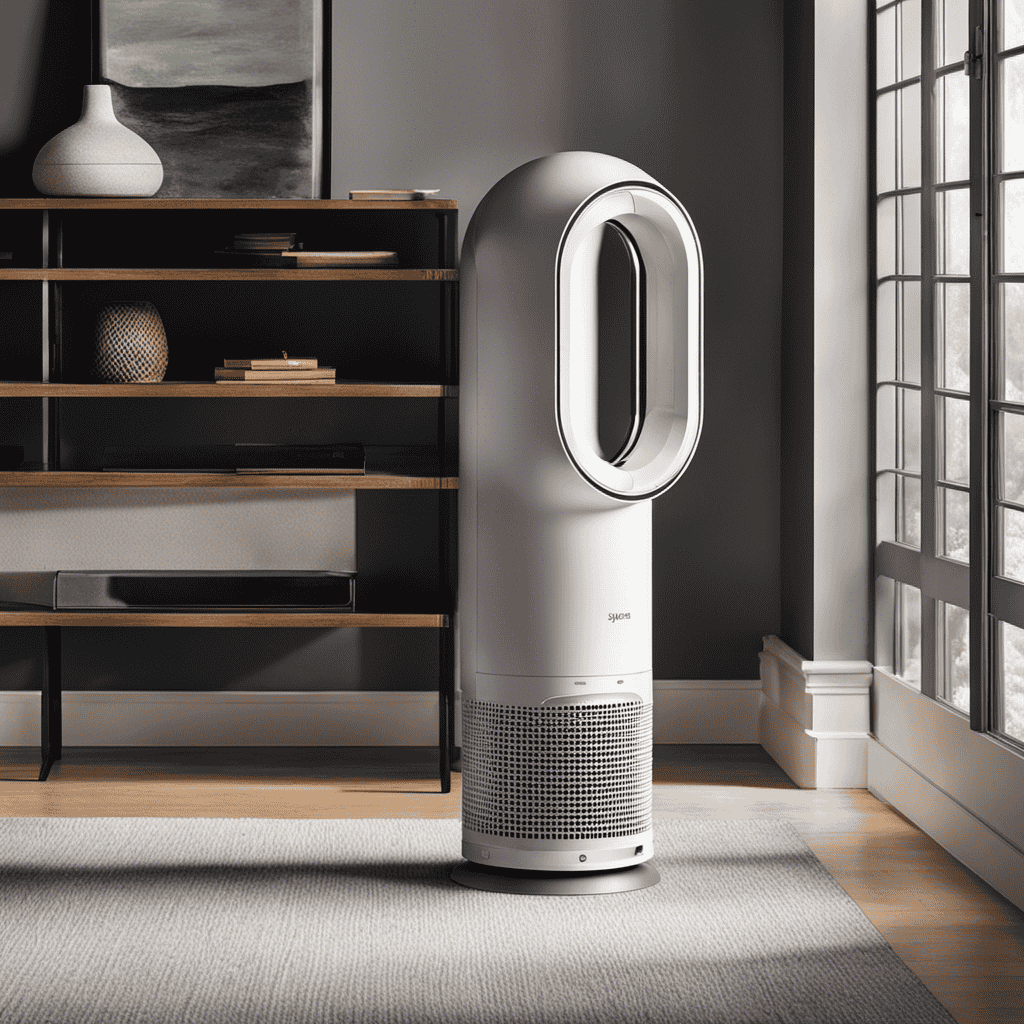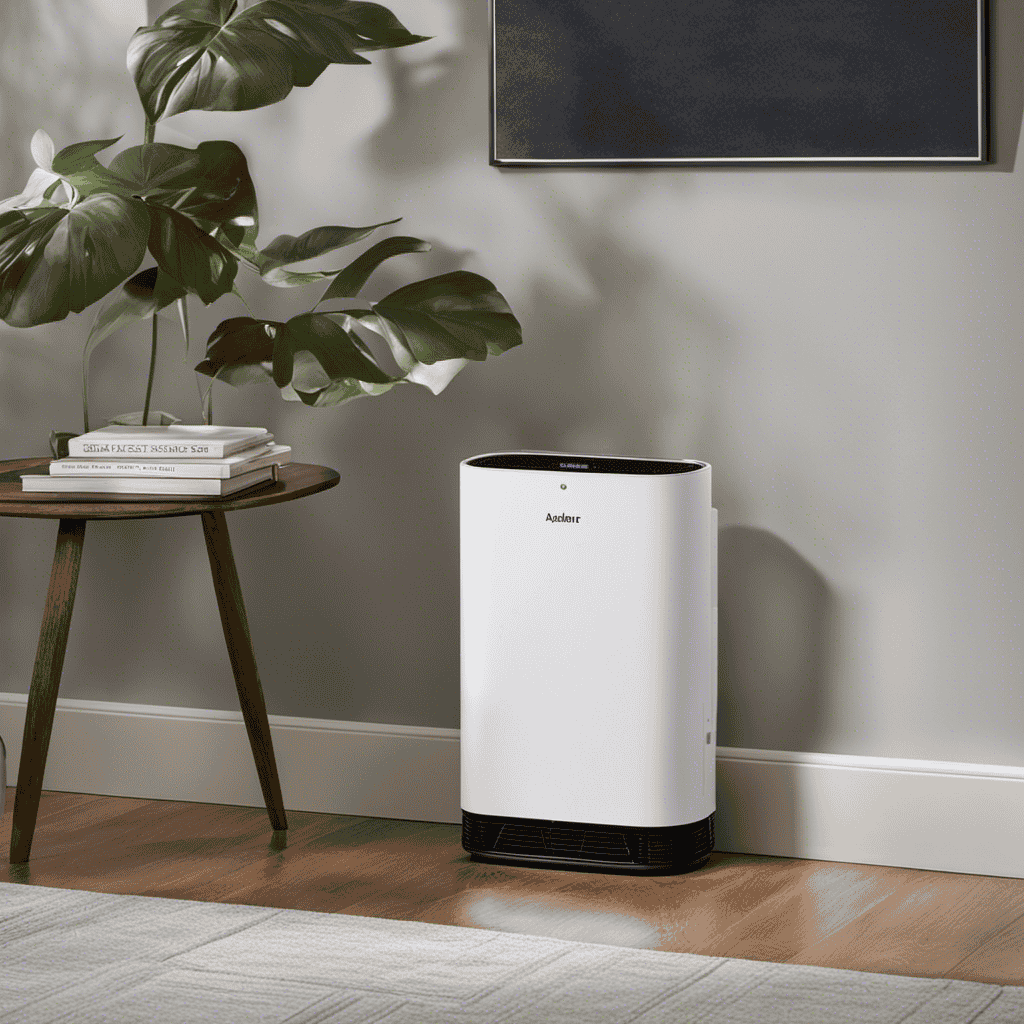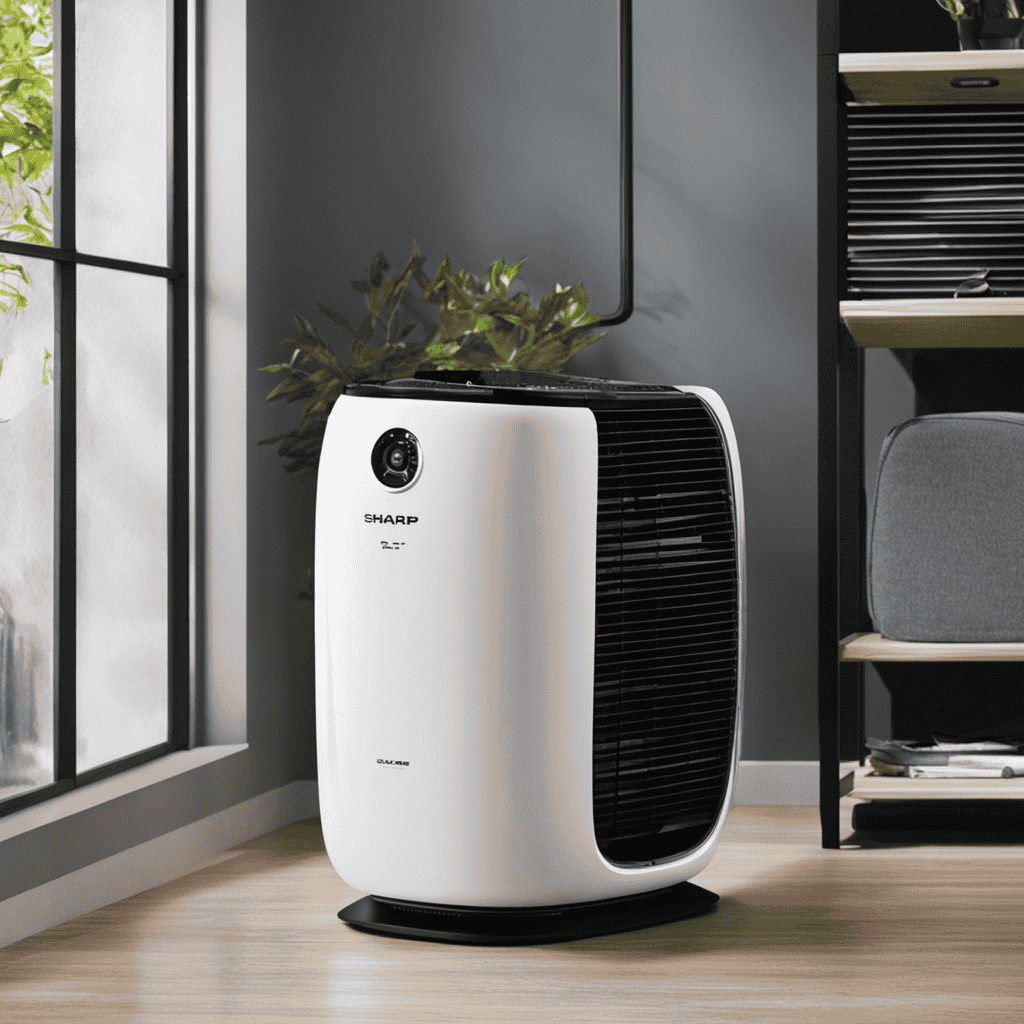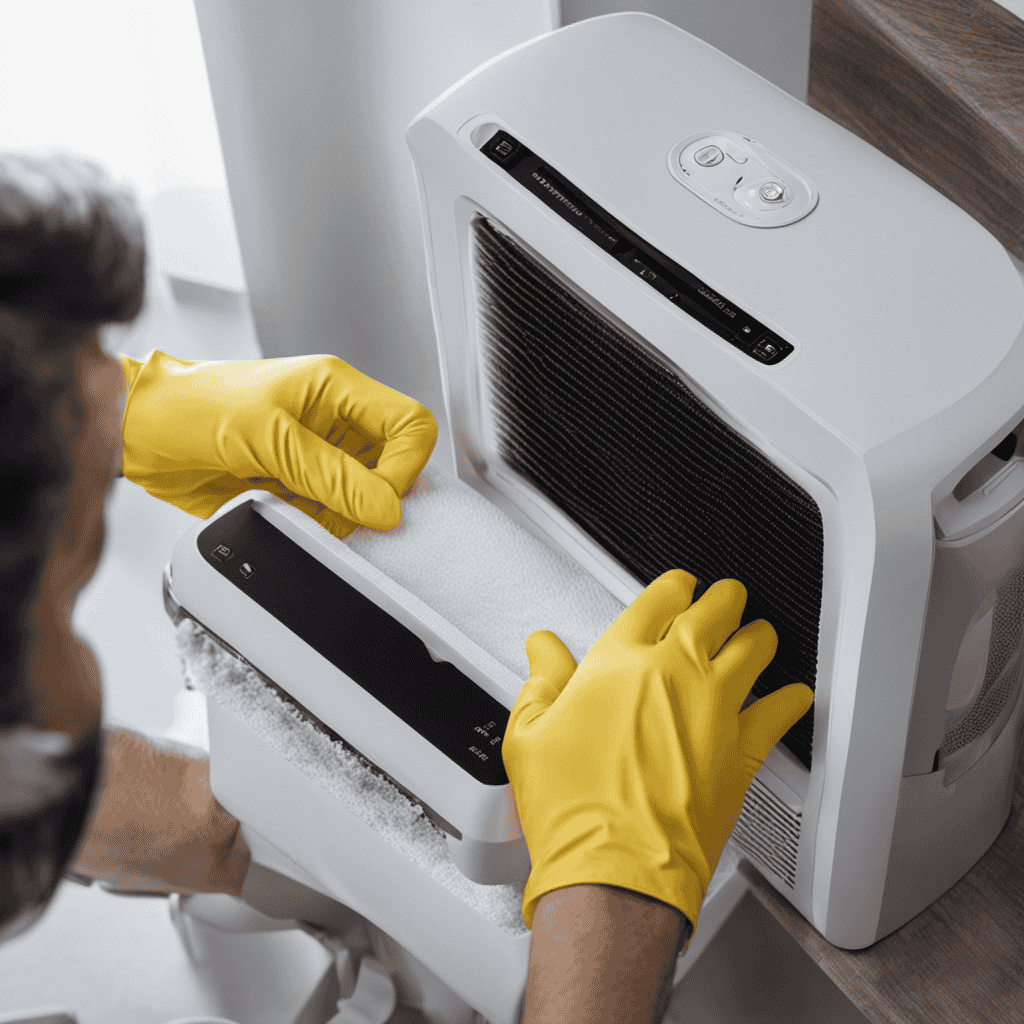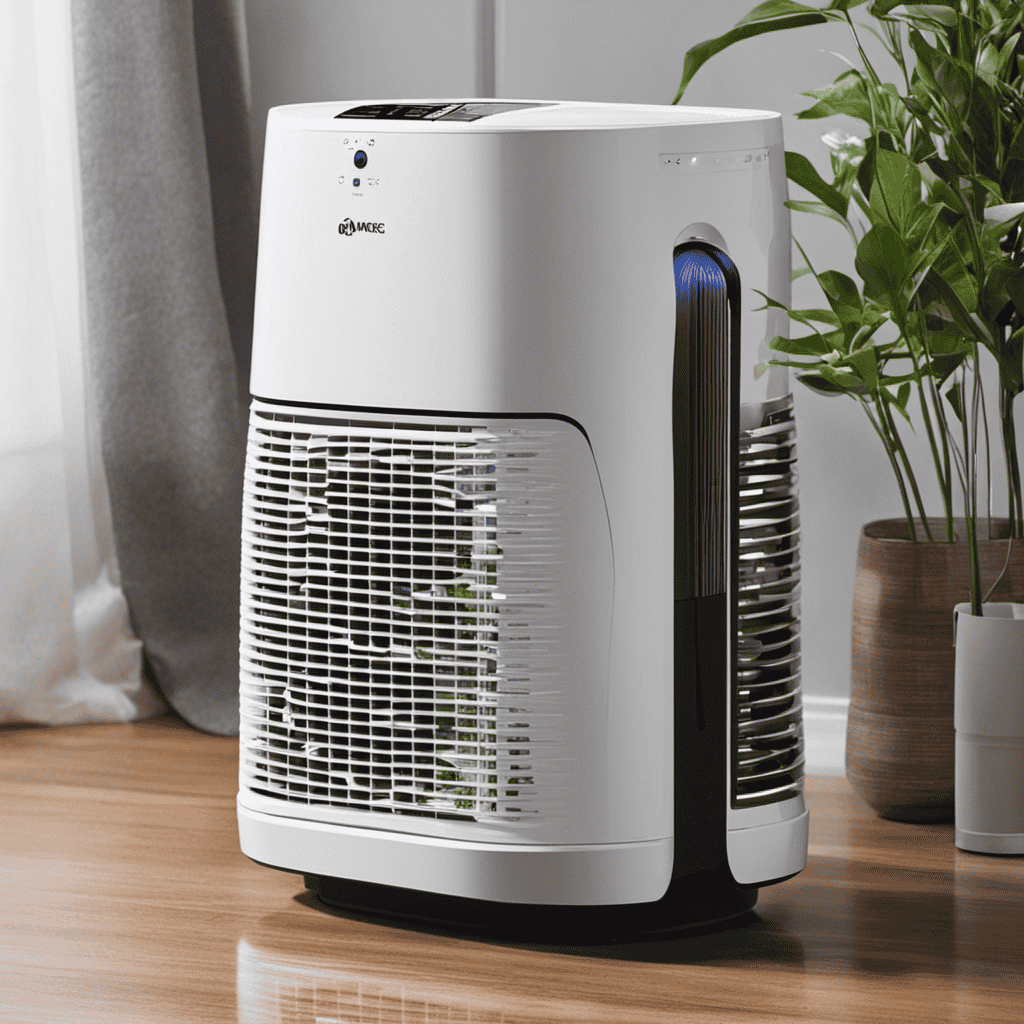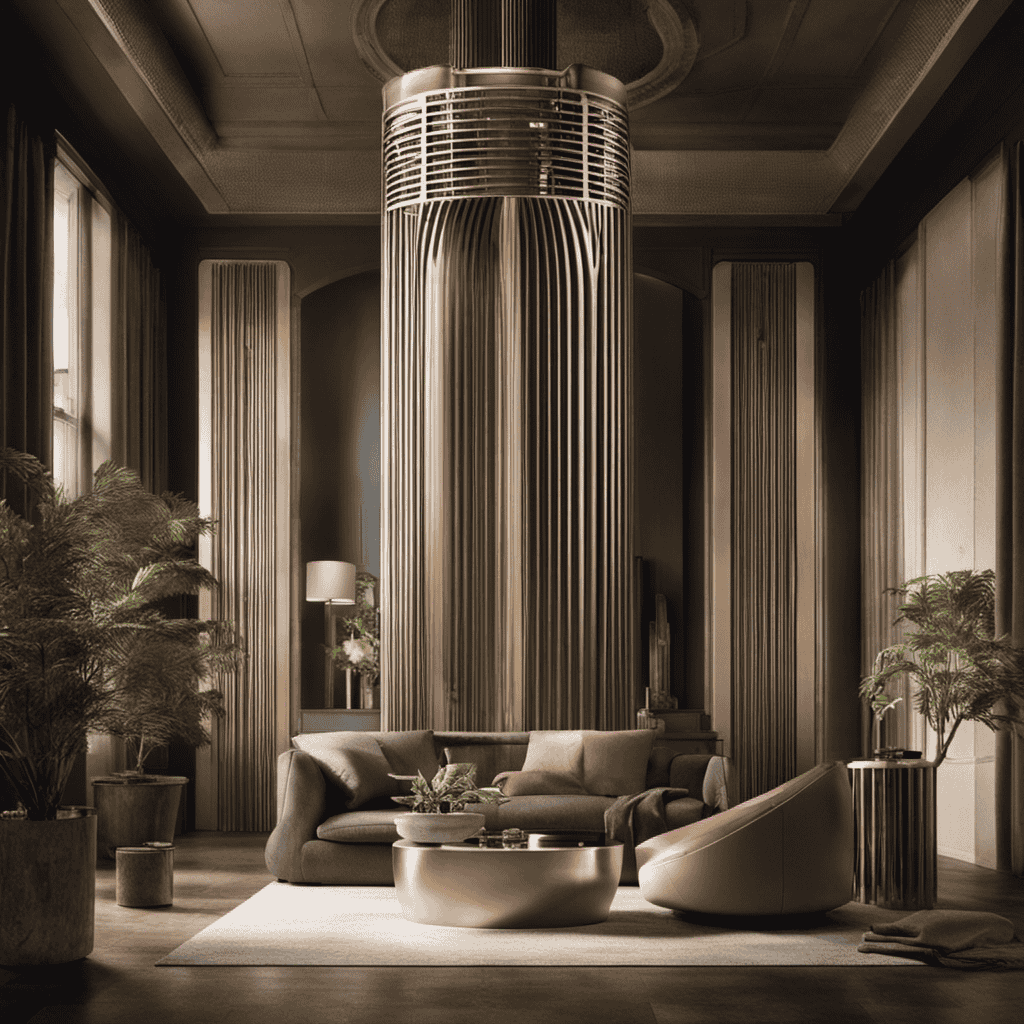Were you aware that the air quality inside our homes can be up to five times poorer than the air outside? This is why it’s essential to ensure the air in our living spaces is clean, particularly by utilizing a Dyson air purifier.
In this article, I will provide you with all the information you need to know about the frequency of changing Dyson air purifier filters. By following these guidelines, you can ensure that your air purifier is always running efficiently and effectively.
Key Takeaways
- Regular filter changes every six months are recommended for Dyson air purifiers
- Clean filters improve air quality and promote a healthier environment
- Regular maintenance and cleaning of filters ensure optimal performance and energy efficiency
- Properly replacing filters extends the lifespan of the Dyson air purifier.
Factors Affecting Filter Lifespan
One of the factors that can affect the lifespan of Dyson air purifier filters is how often they are used. Several factors can impact the performance of the filters and determine how long they will last.
First, the level of air pollution in your environment plays a significant role. If you live in an area with high levels of air pollution, the filters may get clogged more quickly, reducing their lifespan.
Additionally, regular maintenance is crucial to ensure optimal performance. Regularly cleaning the filters and replacing them when necessary is important to maintain their effectiveness. Neglecting filter maintenance can lead to decreased airflow and reduced filter performance.
Therefore, it is essential to regularly inspect and clean your Dyson air purifier filters to ensure they are working efficiently and to maximize their lifespan.
Now, let’s discuss the recommended filter change frequency.
Recommended Filter Change Frequency
The recommended frequency to replace the filters in a Dyson air purifier is typically every six months. Regular maintenance of air purifier filters is crucial for maintaining good air quality in your home or office.
Factors affecting air quality include dust, pollen, pet dander, and other airborne particles that can accumulate in the filters over time. By replacing the filters every six months, you ensure that the air purifier continues to effectively capture and remove these contaminants from the air.
Regular filter changes also help to prolong the lifespan of your air purifier by preventing clogs and reducing strain on the system. In addition, clean filters promote better airflow and can improve the overall performance and efficiency of the air purifier.
Therefore, it is important to prioritize regular maintenance and filter replacement to ensure optimal air quality and longevity of your Dyson air purifier.
Signs That It’s Time to Replace the Filter
If you’re noticing a decrease in airflow or a musty odor, it’s probably time to replace your filter. Regular filter replacement is crucial for maintaining the performance and efficiency of your Dyson air purifier.
Over time, filters can become clogged with dust, allergens, and other particles, which can hinder the airflow and reduce the effectiveness of the purifier. Here are some signs that indicate your filter may be clogging:
-
Decreased airflow: If you feel that the amount of air being circulated by your purifier has decreased, it could be a sign that the filter is clogged.
-
Musty odor: A musty or unpleasant smell coming from your air purifier can indicate that the filter is no longer able to effectively capture and eliminate odors.
Regular filter replacement is important to ensure that your Dyson air purifier continues to provide clean and fresh air. By replacing the filter regularly, you can maintain optimal performance and prolong the lifespan of your purifier. Refer to the manufacturer’s guidelines for the recommended filter change frequency for your specific model.
Steps to Properly Replace the Filter
When it comes to maintaining the efficiency of your air purifier, understanding the filter replacement frequency is crucial. Properly replacing the filter is not only about following the manufacturer’s guidelines but also about using the correct installation techniques.
Filter Replacement Frequency
You should check the user manual for recommended filter replacement frequency. Factors influencing the frequency of filter replacement include the air quality in your environment, the usage of your air purifier, and the type of filter you’re using.
Regular maintenance is crucial to ensure the optimal performance of your Dyson air purifier. Here are four reasons why regular filter replacement is important:
-
Efficiency: Over time, dust, allergens, and pollutants accumulate in the filter, reducing its effectiveness. Regular replacement ensures that the air purifier continues to remove contaminants efficiently.
-
Air Quality: A clean filter means cleaner air. Regularly replacing the filter helps maintain a high level of indoor air quality, reducing the risk of respiratory issues.
-
Odor Control: Filters also help eliminate odors in the air. Regular replacement ensures that the filter continues to effectively remove unpleasant smells.
-
Longevity: By regularly replacing the filter, you can extend the lifespan of your Dyson air purifier and avoid costly repairs or replacements.
Proper Installation Techniques
To ensure proper installation techniques, it’s important to carefully follow the instructions provided in the user manual.
When it comes to filter maintenance tips for your Dyson air purifier, there are a few key things to keep in mind.
Firstly, it’s crucial to regularly clean the filters to maintain optimal performance. This can be done by gently tapping the filters to remove any dust or debris, or by using a soft brush to brush away particles.
Additionally, troubleshooting filter issues may involve checking for any signs of damage or wear, such as tears or discoloration, and replacing the filters if necessary.
Benefits of Clean Filters
Regularly cleaning and maintaining the filters in your Dyson air purifier is essential for optimal performance and longevity. Here are the benefits of regular maintenance and the impact of dirty filters:
-
Improved Air Quality: Clean filters ensure that the air purifier effectively removes pollutants, allergens, and odors from the air. This promotes a healthier indoor environment, especially for individuals with respiratory issues.
-
Enhanced Efficiency: Dirty filters restrict airflow and force the air purifier to work harder, reducing its efficiency. Regularly cleaning or replacing the filters helps maintain the purifier’s effectiveness and energy efficiency.
-
Prolonged Lifespan: A clogged filter can strain the air purifier’s motor, leading to premature wear and tear. By keeping the filters clean, you can extend the lifespan of your Dyson air purifier and avoid costly repairs or replacements.
-
Cost Savings: With regular maintenance, you can avoid the need for frequent filter replacements. This helps save money in the long run while ensuring the optimal performance of your Dyson air purifier.
Extending the Lifespan of Your Filters
By properly maintaining your Dyson air purifier filters, you can significantly prolong their lifespan. To extend filter efficiency, it’s important to understand the difference between cleaning and replacing filters. Cleaning refers to removing dirt and debris from the filter, while replacing involves replacing the entire filter with a new one. Both methods have their benefits and drawbacks, as shown in the table below:
| Cleaning Filters | Replacing Filters |
|---|---|
| Pros: | Pros: |
| – Cost-effective | – Maximum filtration efficiency |
| – Can be done at home | – Removes accumulated particles |
| Cons: | Cons: |
| – May not remove all particles | – Higher cost |
| – Limited lifespan | – Requires purchasing new filters |
To ensure optimal performance, it is recommended to clean your filters regularly and replace them as needed. However, it’s important to avoid common mistakes when changing filters, which will be discussed in the next section.
Transition: Now that we understand how to extend the lifespan of our filters, let’s explore some common mistakes to avoid when changing filters.
Common Mistakes to Avoid When Changing Filters
When it comes to changing filters, there are two key points that should not be overlooked: proper filter installation and choosing the correct filter type.
Proper filter installation involves ensuring a secure and airtight fit, as any gaps or loose connections can compromise the effectiveness of the filter.
Choosing the correct filter type is crucial to target specific pollutants and allergens, as different filters are designed to capture different particles and maintain optimal air quality.
Proper Filter Installation
Make sure you’ve correctly installed the filters in your Dyson air purifier. Proper filter installation is crucial for maintaining the efficiency and effectiveness of your air purifier.
Here are some key steps to follow:
-
Remove the old filters: Turn off the air purifier and unplug it from the power source. Open the filter compartment and carefully remove the old filters.
-
Clean the filter compartment: Use a soft brush or vacuum cleaner to remove any dust or debris from the filter compartment. This ensures that the new filters will fit properly and function optimally.
-
Install the new filters: Align the new filters with the arrows or markings on the filter compartment. Make sure they are securely in place before closing the compartment.
-
Reset the filter indicator: If your Dyson air purifier has a filter replacement indicator, reset it after installing the new filters. This will help you keep track of when the filters need to be changed again.
By properly installing the filters, you can ensure that your Dyson air purifier is working at its best to clean the air in your space.
Now, let’s move on to the next section where we will discuss choosing the correct filter type.
Choosing Correct Filter Type
Selecting the proper filter type for your Dyson air purifier is essential for optimal air quality. When choosing the filter, it is crucial to consider the size of the filter that corresponds to your specific air purifier model. The filter size will vary depending on the model, so it is important to consult your product manual or the Dyson website for the correct filter size.
Once you have identified the correct filter size, it is important to properly maintain it to ensure its effectiveness. Regular filter maintenance is recommended to keep your air purifier functioning at its best. This includes cleaning the filter regularly to remove any accumulated dust and debris. Additionally, it is important to replace the filter as recommended by the manufacturer to ensure optimal air purification performance.
Following these filter maintenance tips will help extend the lifespan of your Dyson air purifier and maintain excellent air quality in your home.
Frequently Asked Questions
Can I Clean the Dyson Air Purifier Filters Instead of Replacing Them?
I can clean the Dyson air purifier filters instead of replacing them. However, it is important to note that cleaning effectiveness may vary, and alternative cleaning methods may not fully remove all contaminants.
How Do I Know if the Filter Needs to Be Replaced or if It Just Needs to Be Cleaned?
To determine if the filter needs replacing or cleaning, check for visible dirt and reduced airflow. Cleaning can be done every 3 months, but filters should be replaced every 12 months for optimal performance.
Is There a Way to Check the Lifespan of the Filter and See How Much Longer It Will Last?
There are ways to prolong the lifespan of Dyson air purifier filters. By regularly cleaning the filter and avoiding heavy use in polluted environments, you can extend its longevity. It’s also important to determine when to replace or clean the filter by checking its condition and performance.
Can I Use Generic or Off-Brand Filters Instead of Dyson Filters?
Using generic or off-brand filters in Dyson air purifiers may save money initially, but they may not provide the same level of filtration or fit as well. Dyson filters are specifically designed for optimal performance and should be used for best results.
Are There Any Specific Maintenance Tasks I Should Perform on the Air Purifier to Ensure the Filters Last Longer?
To ensure a longer filter lifespan for your Dyson air purifier, there are specific maintenance tasks you should perform. Regularly cleaning the pre-filter and monitoring the filter status indicator will help maintain optimal performance and extend the life of the filters.
Conclusion
In conclusion, maintaining clean and effective air purifier filters is crucial for ensuring the quality of the air we breathe.
Just like changing the filter of a Dyson air purifier, we must regularly refresh our lives and embrace new beginnings.
By replacing the filters at the recommended frequency and avoiding common mistakes, we can create a fresh and pure environment, symbolizing a clean slate and a renewed sense of vitality.
Let us breathe in the crisp, purified air and embrace the possibilities of a fresh start.
